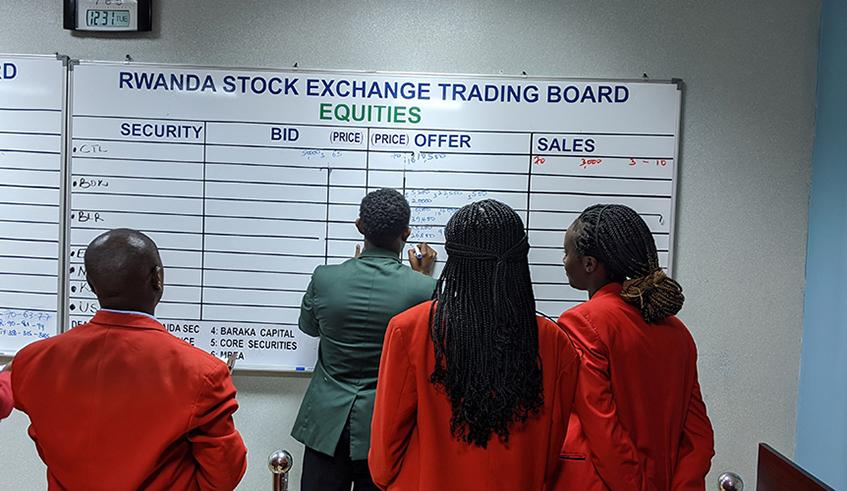Africa-Press – Rwanda. Rwanda’s start-up scene is gaining momentum with some players already registering funding. This is driven by an increase in the number of entrants in the ecosystem. For example, it happens that most of the people I tried to engage in relation to start-ups in technology, a whopping 80% (16 out of 20 people) have plans of becoming tech-entrepreneurs by founding a startup.
However, despite the ambitions of the entrepreneurs wishing to establish start-ups, research illustrates that only a tiny number of start-ups make it, especially in emerging economies. This failure is mostly ascribed to the risks involved, and the fact that the solutions offered by the start-ups often give the impression that they are mere “speculative and challenge conventional wisdom”. This pushes away traditional funding and investments.
Despite the fact that the challenges facing start-ups in small economies seem unsolvable, jurisdictions like Rwanda have seen some notable developments recently which are benefiting or will benefit the industry. This will probably make Rwanda the heaven of start-ups in the region or in Africa. This article sheds light on the recent and exact developments to boost start-ups eco-system:
1. Enactment of Startups Act
Rwanda plans to enact a law that will govern start-ups. Though the law is still in the pipeline, it is presumed that when the law is enacted it will be a game-changer because it will aim to indirectly and directly boost the country’s entrepreneurial and business environment by creating more incentives and a better environment for start-ups. One of the highly anticipated benefits lies in the taxation of start-up companies. The establishment of dedicated startup laws as a way of sustaining innovative entrepreneurship is not new on the continent because countries like Tunisia and Senegal have been there before Rwanda, and they have witnessed better success stories that inspire other jurisdictions to follow the same suit. In case all goes as planned, the anticipated law may be published in the Official Gazette in the near future according to the Ministry of ICT and Innovation that initiated the bill in relation to start-ups law.
2. Introduction of Regulatory Sandboxes
sandboxes have been a trend lately where governments around the world use them to poach innovative digital products and services. Sandboxes provide a favorable testing environment for a limited time to tech companies (mostly) so as to develop and test innovative technologies or solutions without being subjected to plenty of regulatory requirements.
Rwanda’s Central Bank introduced its sandbox for companies to test new innovative technology-based financial services and was later joined by Rwanda Utilities Regulatory Authority building its own sandbox. However, although these initiatives championed by the most powerful regulators in the country and were highly regarded as revolutionary, they have been criticised to still make it difficult for companies to benefit from them.
3. Incentives for Start-ups and Talent Attraction Incentives
In addition to incentives accorded to private equity and venture capital funds and angel investors, the new law on investment promotion and facilitation provides for specific incentives for start-ups including exemption of capital gain tax upon the sale of shares, and exemption from withholding tax applicable to dividends issuances by the start-up. For talent attraction incentives the law allows foreign start-up founders and innovative entrepreneurs a 2-year entrepreneurship visa. Immigration laws have been used all over the world as a tool to attract talents and innovation. These incentives will attract a quality supply of human capital; the right people with the right skills and knowledge as well as high net worth start-ups to pull into the ecosystem.
4. Winning Over Norrsken Foundation Investment
Norrsken is a non-profit Foundation that supports and invests in both for-profit businesses and non-profit organizations. Its Kigali hub will house a mix of start-ups, incubators, accelerators, investors, lawyers, accountants among others from the continent. Having Norrsken in Kigali with its global portfolio, ambitions, network, facilities, expertise, and resources, is an unmatched opportunity for the ecosystem. Initially, it targets to invest $12 million and build a local unicorn company by 2030.
5. Introduction of Kigali International Financial Centre (KIFC)
KIFC initiative powered by Rwanda Finance Limited is intended to position Rwanda as a preferred financial jurisdiction for investments into Africa, as well as reforming the domestic financial industry.
Through this initiative, a lot has been achieved already such as restructured regulatory and legal framework which has noticed the enactment of new laws and conclusion of global strategic meaningful partnerships to support the cause. The changes driven by KIFC registered the introduction of new types of entities such as protected cell companies (PCC), limited liability partnership (LP), and limited liability partnership (LLP) which are suitable for investment players the likes of private equity and venture capital funds. This is a huge development for the start-ups’ ecosystem since it facilitates industry big players’ entry as well as the visibility of local innovative products and services to the outside world. The Centre also has recently announced a $250 million Pan-African fund, an investment project that targets essential sectors including digital infrastructures.
6. Establishment of ICT Chamber
Formed under the Private Sector Federation (PSF) as an agent to support ICT sector development. The Rwanda ICT Chamber brings together ICT associations, businesses, groups, and individuals into a community where they can share ideas on “how to promote and develop Rwanda’s ICT and ICT-enabled Industries”.
ICT Chamber has already set the tone; it is the ‘uncle’ behind interventions such as 250 Startups; the famous incubation center in Kigali, Klabs; IT entrepreneurs collaboration center, Leaprlab, R&D center, Fablab, hardware and electronics developers center, and many more other winning projects. Many innovative entrepreneurs have benefited from this establishment and the journey continues.
7. Rwanda Stock Exchange (RSE)’s Investment Clinic
This program strives to identify the gaps in SME’s investor readiness, recommending actionable steps, showcasing ‘investor-ready small-medium enterprises (SMEs) to potential investors, and connecting SMEs to the capital market and other technical assistance ecosystems; to help them build thriving and sustainable businesses that will attract the best investors. Through this program, the beneficiary gets assistance to address gaps at subsidized rates, improved ability to attract quality investors, a chance of displaying a profile to prospective investors, priority access to other technical assistance programs offered by RSE’s partner institutions, and improved access to the capital market ecosystem.
8. Rwanda Angel Investors Network
This is a network of high-net-worth individuals who aim to provide financial backing of about $50,000 to $300,000 and mentorship for small post revenue startups of Rwandan origin. The network also objects to instill stock investment culture among Rwandans.
The network welcomes local successful entrepreneurs, local successful executives, Rwandans in Diaspora and local formal & informal investment groups for membership. This kind of investment means a lot to the ecosystem for both individual investors and startups promising projects. It is the first of its kind in the country and it is also considering expanding its wings and include institutional investors as members to make the network broader with enough funds.
Going forward, there are opportunities for the government to act as a guarantor to the lenders to embolden banks and other financial institutions for providing venture capital to start-ups.
This will ensure the flow of capital and investments for innovative ventures. Easy tender regulations that exempt startups from prior experience, revenue criteria applicable for other companies contending for government tenders is another way to nurture the sector. This helps start-ups gain confidence from other target clients but also make money to support their operations and growth. Satisfactorily funded research and development facilities are another way to go.
For More News And Analysis About Rwanda Follow Africa-Press






